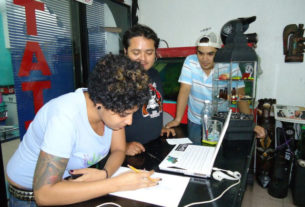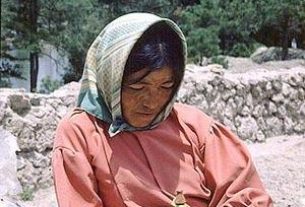Last month’s article stirred up some questions from some homeowners that I thought we could address in this month’s issue.
Aljibes (underground water cisterns) are a critical link it each homeowners water supply. Whether you have a roof tank ( tinaco) or a water pressure system, the initial quality of the water that finally arrives at your faucet is dependent on the water quality in the aljibe. Typically, these underground tanks will require regular maintenance.
The float valve that regulates the flow of water from the street into the aljibe should be checked regularly. This valve is much like the traditional float valve system you see in a toilet tank, in that a float on an arm articulates and closes the valve stopping the flow from the street, preventing the overfilling of the aljibe. Sometimes the washer in the valve becomes worn out and the water flow never shuts off completely or the valve itself becomes clogged with debris or sand from the street water, and does not allow water in to refill the aljibe. Usually, these simple valve problems are discovered after the aljibe overflows or the homeowner runs out of water.
The aljibes themselves can accumulate dirt and debris from the water supply line. Also the roots of plants have the nasty habit during their search for water of entering through the ceiling and walls of the aljibe. Depending on the aggressiveness of the root system, this can be devastating to the walls of the aljibe by forcing cracks and hence forming leaks that permit contamination to enter the aljibe or the loss of water from the aljibe.
Some owners will also regularly put chlorine tables into the aljibe to kill any pathogen in the water thereby increasing the quality of the water. Chlorine is good however; it does have a deleterious effect of causing any metals (in particular iron) to form on the interior of the aljibe in the form of an oxide. This rusty color can then sometimes be seen in the water, affecting its clarity. Also chlorine at high concentration can cause the accelerated oxidation of the metal pipes, types of plastic pipes, water heaters and Dielectric Unions (pipe connections). Care should be taken to not over chlorinate the water in the aljibe.
Depending on the water quality, the aljibe may need to be cleaned every one to two years to remove the accumulation of silt/sand and any other debris. This is not a “do-it-yourself” type of job and a professional should be contacted who will have the right equipment to do the job. While working inside aljibes, people have become incapacitated and sometimes died due to the air quality in the enclosed area of the tank. The lack of oxygen, accumulation of carbon dioxide and the fumes of cleaning products affect the air quality. Extreme care should be taken to ventilate the aljibe or else the person cleaning the tank should have a back up respirator. This cleaning should never be done by one person alone.
Care should be also taken to avoid the infiltration of any contaminants entering the access panel or door to the aljibe. Often the aljibe is located under a carport or garage floor and is susceptible to spilt chemicals or fluids dripping from the car. In some cases where the access panel is on a walkway or garden area, the garden or roof runoff can pass directly over the access door to the aljibe. This runoff can contain garden chemicals, insecticides, other non-organics and microbes (Coliform bacteria, etc).
Curbing around the access panel will help prevent and contaminant from being washed into the aljibe and care should be taken to not store anything over this access that could leak into the aljibe. If your car is leaking anything, do not park it over the aljibe. Nor should any potted plants be placed over or near this opening.
Some newer homes have taken advantage of the manufactured plastic tanks designed for subterranean use and have a “sealable” access door at the top. With the tank properly installed, this plastic sealed door will help prevent some of the contamination associated with the traditional masonry aljibes that are constructed in-situ.



